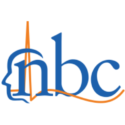Three Positive Ways Biofeedback Can Help Beat Addiction
Biofeedback is the unique use of electronic EEG monitors to gauge and treat various aspects of your health. This technique has expanded to include a myriad of treatments, including drug addiction. How can biofeedback help with drug addiction? Here are three of the most promising ways it manages this problem.
Helps Identify Negative Triggers That Influence Addiction
Biofeedback carefully monitors the way that your body and mind reacts in certain situations, and can be used to identify the changes that occur when you feel addiction triggers. Triggers are those moments that inspire you to use, and your body goes through many chemical changes when they occur. Understanding these and how you feel when they happen can help you identify your triggers and find ways to combat them.
Assess Psychological Problems That Contribute To Addiction
Dual diagnosis occurs when a person suffers from addiction and contributing mental health disorders. It is a problem that shows up in a vast majority of addiction cases, and it can be troubling. However, biofeedback can not only help diagnose these problems, but find ways to treat them. In many cases, biofeedback sessions can serve as the treatment itself. At the very least, it is a great alternative treatment that works side-by-side with more traditional addiction treatment methods.
Treat Negative Physical Side Effects
When you are trying to quit using drugs or alcohol, your body falls into a state known as withdrawal. During this period, you will suffer from severe and agonizing physical and mental health problems. However, biofeedback has been shown to be incredibly effective in limiting the onset and severity of these symptoms, making it a promising new way to quit for good.
Biofeedback is an addiction treatment technique that needs to be studied thoroughly and examined in depth. To learn more about it and other treatments like it, please don’t hesitate to call Northwest Biofeedback Center at (847) 627-8164 or (224) 334-3070 today.

